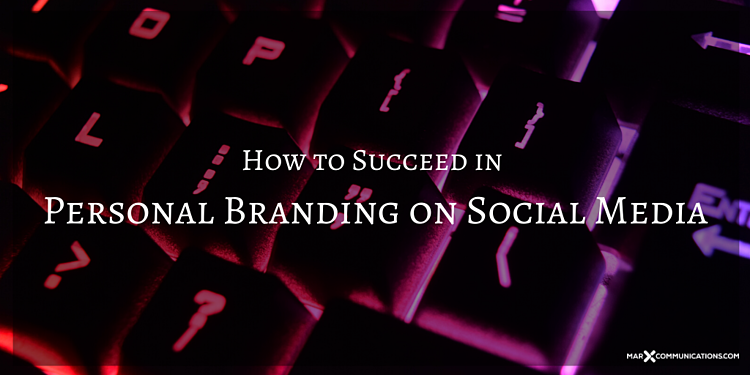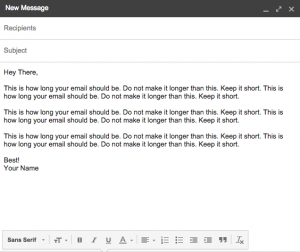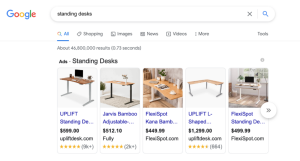
Social media is like a blank canvas for both personal and work life. Depending on how you use it, you can draw attention to your expertise and establish a solid reputation in your industry. There’s no doubt that there’s an important place for personal branding on social media.
But before we get into the ins and outs of personal branding with social media, let’s look at why personal branding is important in the first place.
Why You Need a Personal Brand
Some might initially scoff at the idea of personal branding. After all, they reason, that’s why you have a business brand.

But business brands no longer cut it. Audiences want to know the people behind the brand. Not to mention that there are a growing number of people who do not have a business brand — experts in their field who work at other companies — but who would like a way to establish their knowledge and expertise in their industry.
As personal branding has become more popular in recent years, we’ve seen additional benefits to actively build a personal brand. Let’s consider a couple of reasons here.
First, it builds trust with your audience. Think about it…what do you do when a stranger approaches you on the street to sell you something? You no doubt hesitate, or even recoil, because you don’t know the person or the product being sold. On the other hand, if one of your close, trusted friends were to approach you about a product they love, you’d hear them out and possibly buy.
People want to purchase products from people they know and trust. While your entire audience can’t know you individually, a personal brand can make them more comfortable with you. As they follow you on social media, check out your content, and see how you engage with others, they begin to know and trust you.
Second, it helps a company’s bottom line (or our own if you’re a business owner) especially if you do your personal branding on social media. One study from Sprout Social showed that customers were 77% more likely to purchase from a brand that was active on social media.
So how can you use social media to drive your personal branding strategy? What tactics will help your personal brand flourish amid the commotion on social media?
Let’s look at some personal branding tips that you can use to get the most of your social media strategy.
How to Succeed with Personal Branding on Social Media
1. Revamp Your Social Accounts
 No doubt you’ve been using social media for a while — and perhaps it’s been mostly an afterthought — a post here, a like there…. But now is the time to take your social media strategy seriously. First step? Actively improve and modernize your profiles to showcase your personal brand.
No doubt you’ve been using social media for a while — and perhaps it’s been mostly an afterthought — a post here, a like there…. But now is the time to take your social media strategy seriously. First step? Actively improve and modernize your profiles to showcase your personal brand.
What does an effective social media account look like? First all your information should be completed and accurate. Second, ditch any unsavory pictures or posts that would work against your personal brand.
Next, it’s time to beef up your social media profile’s appearance. Use a profile picture that’s both professional and welcoming. Because people are visual, make your profile pop with interesting images and videos that introduce people to your personality.
2. Choose an Area of Expertise
If your area of expertise is too broad, your audience will question its legitimacy — after all, nobody can be perfect at everything. Choose an area or two where you can shine and impress your audience. Over time, as you develop a strong personal brand, you might decide to add other areas of expertise.
Initially, take time to narrow your focus and determine what area within your industry would best fit your brand. Pick an area that you’re passionate about and that you could talk about endlessly. This will help you to engage your audience, especially when you begin to create content. Speaking of which…
3. Create Engaging Content
 Content is the life-blood of social media — and the more original, the better. When people engage with content that you’ve created — whether it’s a blog post, video, or infographic — they get a real sense of your expertise and your personality. That interaction draws people to your personal brand and creates loyal followers who will return for more helpful content.
Content is the life-blood of social media — and the more original, the better. When people engage with content that you’ve created — whether it’s a blog post, video, or infographic — they get a real sense of your expertise and your personality. That interaction draws people to your personal brand and creates loyal followers who will return for more helpful content.
Where do you begin? Look at what questions your audience asks and what problems people face within your industry. You could discover this by doing some research on social media networks like Twitter. Quora is another great site to see what questions people are asking. And for some inspiration, you can also invest in a paid tool like BuzzSumo to see what the most popular pieces of content are in your industry.
Consider potential topics to see where you can add fresh insight and advice — you don’t just want to spout out the same things that everybody else is saying.
Once you have a list of topics in mind, it’s time to create. Write blogs. Create colorful infographics. Craft your own ebook. Once you’ve created content, share it with your followers on social media.
4. Leverage AI
It’s easy to keep up with social posting and engagement when it’s new and exciting. By the same token, it’s easy to forget about it after the initial drive wears off. And that’s where artificial intelligence, AI, comes in handy.
There are al AI apps and tools such as HubSpot and Sprout Social that can help you achieve a regular posting schedule — even curating relevant content for your audience. There are also tools that can engage with your audience on your behalf.
These tools are great because you set the pace. If you want to simply use a social media planning and management tool to keep everything organized and timely, there are tools like HootSuite that help you to do that. If you find that you’re too busy to devote enough time to social media, there are also tools that can take care of many of the tasks that you’re too busy to handle.
5. Curate Content
 While your personal content is going to be the most powerful in terms of building your brand, there’s also a valuable place for curated content. This is content created by others that you repost on your social media feed.
While your personal content is going to be the most powerful in terms of building your brand, there’s also a valuable place for curated content. This is content created by others that you repost on your social media feed.
What’s the benefit to curating content? When you share someone else’s content, it’s like a nod to the creator, which is always appreciated on social media. This helps you to network and build relationships with others in your field — relationships that may lead to a collaboration in the future.
It also shows your audience that you sincerely want to help them, even if it’s by sharing content that you did not personally create. It helps them to feel like you’re there for them, not just to get more views or likes.
Note: Make sure that you personally like the content that you repost. Otherwise, you could be associating your name with content that’s subpar.
6. Be Positive
Remember that your social media profiles and history will stand as a kind of online resume. Future employers and collaborators — not to mention followers — will turn to these profiles to get a better picture of who you are and what you stand for.
This is why your posting and engagement on social media should always be on the up and up. Be careful about your political or religious commentary. Avoid comments that could come across as slurs against a certain group of people.
If this doesn’t sit well with you and you want a space to share your personal thoughts and feelings freely, then you might consider creating another profile online where you can do that. But if you’re looking to build a strong personal brand, then strive to keep your brand profile wholesome and exemplary.
7. Join Groups

Groups help you to experience the social part of social media to its fullest.
From Facebook to LinkedIn, you’ll find a number of groups specifically geared toward your industry. Sniff out which groups best fit your brand and join them. Such groups can help your personal branding strategy in a number of ways, including…
- Getting valuable feedback.
- Getting ideas.
- Expanding your skills.
- Gaining confidence.
- Becoming a leader.
- Helping others.
However, you won’t reap any of these benefits, if you don’t jump right in and engage in a group. Post often and engage with others. Comment on other posts. If someone asks a question and you can give meaningful advice, do it. This will help others to get to know your brand and your expertise and may even result in more engagement on your own profile.
8. Be Consistent
Consistency helps your audience to get to know and trust you. On the other hand, if you constantly change your opinions and persona, your audience won’t have time to get to know you, or even get close to you.
It might take some trial and error initially to nail down your online presence and that’s normal. Take time to find a pattern where you’re comfortable.
Consistency becomes even more important the more social networks you’re on. You want your audience to have a seamless experience from one network to another. If people follow you on one social network, ensure that they can jump right in on another network and feel right at home. This includes using the same profile picture and general tone and message on your profiles and feeds.
In review…

Personal branding with social media will expand your reach and solidify your expertise. We hope you’ve enjoyed these personal branding tips and can use them in your own strategy.
Digital & Social Articles on Business 2 Community
(38)
Report Post





